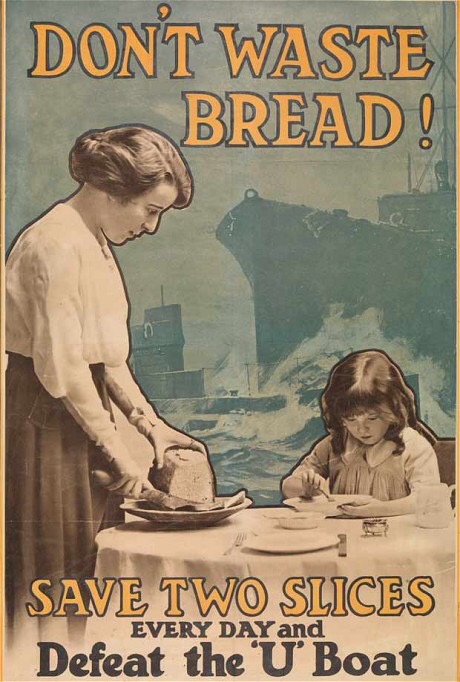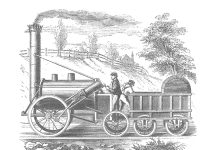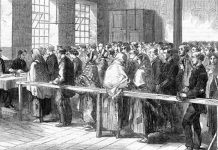A grisly murder was occupying the news across Manchester this week.
The body of a seven year old boy was found in a canal in Radcliffe that week.The boy was the son of a soldier who had been fighting in France but was currently on leave stationed at Litchfield.
His wife had taken in a lodger, a Mr Unwin a Yorkshire Collier but over Xmas she had gone to live with her mother while he went away.On his return he asked Mrs Osbourne to set up home with him but he refused.
It was alleged that he went to the children’s school that afternoon where she had a girl and two boys and told the two boys that their father had returned home. According to a statement of the older boy Horace, he took them to tea and then to the picture house returning to Radcliffe at around midnight near a stream around a mile and half from their home.The older lad then said that Unwin picked up the young boy who had been crying and ran away with him.
Unwin was now in custody and charged with murder
The question of further licensing restrictions in Manchester was being considered after the latest report from the justices which recommending that the order that was currently in force in Plymouth should be extended across Lancashire and Cheshire which would bring Sunday hours across seven days of the week.
The Chief Constable rejected the recommendations on the basis that the incidents of drunkeness were almost half in 1915 as to what they had been a year earlier but according to reports in the Manchester Guardian that week, the Sunday hours would be brought in very quickly which would see intoxicating liquor being sold only between 12 noon to 2.30 and 6.30 to 9.30 with half an hours drinking up time.
There were also worries that week about the price of bread with enemy action starting to have a real effect on the supplies of wheat.However the head of the Master Baker’s Protection Society eased the worries of the housewife saying that for the moment there was no prospect of price rises.
The new blackout restrictions were contributing to accidents in the city.A young women was knocked down by a motor car on Oxford Road and was in a critical condition with head injuries while a women from Openshaw suffered a broken leg after being hit by a ar in Mosley Street.
A fifty year old slipper maker was knocked down and killed by a tram whilst waiting on the island platform at Piccadilly waiting for the Levenshulme tram coming up Market Street stepping in front of the car before it had come to a halt.
A shopkeeper in Butler Street Ancoats was charged with obstructing and assaulting the police after being told that the light from his shop was contravening the blackout regulations. After a struggle in which one officers coat was torn he was arrested and fined five shillings plus twenty for the damage to the coat.
It was announce that new electric trains would soon be running on the Manchester to Bury line through Prestwick. The electrification of the line was almost complete and the rains were already being tested.In all probability the new service would begin at the end of February.
The first batch of men led up for service under the Derby scheme left Manchester to begin their training.
They assembled at Victoria Station to be conducted to their depots.According to the Evening News, they were “ cheery and high spirited”
That week, more casualties were announced from the Manchester Pals, the seventeenth battalion Manchester regiment. Second Lieutenant William Tonge aged 23 who had only been a front for two months and Private John Holt who was 27 were both killed in France
The writer HG Wells was in the news writing about the war.The prospect of a conclusive end of the tradition pattern to this war, he said of the triumphal entry into London, Paris, Berlin or Moscow is to be dismissed alTogether from our calculations.The end of the war will be a matter of negotiation between practically immobilized and extremely shattered antagonists.







